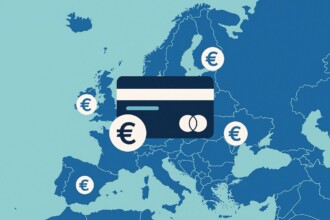Clinking of chips, rustling of bills ,it’s the iconic sound of the casino floor. But they are also some of the most endangered sounds if the industry continues to evolve into a new age of cashless casinos. Now, as digital wallets become popular and people appreciate how simple and easy contactless payment methods can be, casinos are pondering the possibility of going completely cashless. But, before we finally “cash out” on our physical currency, it becomes very important to actually unpack what this digital revolution means.

Betting on Convenience and Security:
The introduction of casinos, like Coinkings, will be the greatest help in this regard, as this problem will be eliminated for the player, who would not necessarily have to care anymore about carrying a heavy wallet or waiting to use an ATM. A digital wallet also makes it easy for one to transfer money between games instantly and track in real time how much one spends. This would not only enhance convenience in the process but also could, in turn, promote responsible gambling in that users would have an ability to place limits on spending.
As for casinos, the additional benefits shall include cut-down cost pertaining to cash handling, security, and counterfeiting. They shall have data from the cashless system that will help them in reaching their target and customising marketing, along with loyalty programs.
A Case in Point: The Encore Boston Harbor Experience
The brightest example of a cashless casino is Encore Boston Harbor. Opened in 2019, the hotel carries out all the financial turnover through the mobile application and RFID (Radio-Frequency Identification) technology. It enables loading of one’s digital wallet through the app and using the same for slots, table games, and even paying for in-house restaurants.
By 2022, Massachusetts Gaming Commission announced that the cashless system had been effective at the Encore Boston Harbor [1]. The publication highlights a big decline in cash handling costs and gives credence to the promise that the operator is said to have made on the application of responsible gambling features. However, the company has also recognized concerns from some players, such as privacy issues and the potential to push spending up because of the convenience of making digital transactions.
The Balancing Act: Responsible Gambling and Regulatory Hurdles
This requires very delicate consideration of the potential behavioural impacts on the players. The University of Calgary2 found that cashless transactions could speed up gameplay and increase spending, especially for problem gamblers. Cashless systems will also have to include strong responsible gaming features, like mandatory limits to expenditure and opportunities for time-outs.
Also, there are big regulatory barriers that loom large. AML Compliance remains a paramount concern. The Financial Crimes Enforcement Network (FinCEN) [3] has put forward its draft regulations on casinos to prevent money laundering originating from digital transactions. The cashless systems will have to adapt to such a rigorous standard set by these casinos. If they fall under regulations, data privacy ordinances like the GDPR (General Data Protection Regulation) imposed in Europe would require careful use of player data obtained through cashless operations.
Beyond Convenience: Addressing Accessibility and Inequality
Turning to cashless casinos should not turn away some of the players that do not own smartphones or have a digital wallet. The most recent analysis from the Pew Research Center ,conducted in 2023 ,revealed that 16% of the American adult population were either “unbanked” or “underbanked,” meaning they had either no access to traditional banking services or very infrequent, limited access to them. Casinos need to ensure that alternative means, including vouchers or reloadable cards, are in place to be used by those demographics.
The Final Bet: A Future Shaped by Innovation
Cashless casinos are an unfolding trend, but definitely, they will shape the future destiny of the industry. The rapid advancement of technology means more creative means are in the offing. For example, with biometric authentication, no cards or phones will be required.
The onus lies in achieving a balance. Of course, the benefits of easy play and safe holding in cashless casinos cannot be gainsaid. However, responsible gaming practices, strong regulatory frameworks, and inclusivity measures are what shall make the changeover smooth. It remains that the industry should embrace innovation in such a way that the future casinos are reasonably accessible to all, not necessarily just on a cashless basis.
Sources:
[1] Massachusetts Gaming Commission: Investigation into Cashless Gaming at Encore Boston Harbor (2022) [https://massgaming.com/news-events/article/mgc-press-release-encore-boston-harbor-fined-for-sports-wagering-catalog-noncompliance-2/]
[2] University of Calgary: The Psychology of Cashless Gambling: A Critical Review (2020) [https://research.ucalgary.ca/alberta-gambling-research-institute/research/national-gambling-study]
[3] Financial Crimes Enforcement Network (FinCEN): Guidance for Casinos Regarding Anti-Money Laundering Programs (2021) [https://www.fincen.gov/resources/statutes-regulations/guidance]
[4] Pew Research Center: The Unbanked and Underbanked of America: 2023 Update [https://www.pewtrusts.org/en/research-and-analysis/issue-briefs/2023/05/affordable-credit-poised-to-save-consumers-billions]









